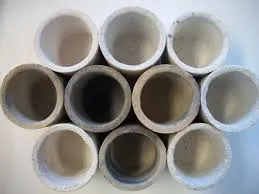- Afrikaans
- Albanian
- Amharic
- Arabic
- Armenian
- Azerbaijani
- Basque
- Belarusian
- Bengali
- Bosnian
- Bulgarian
- Catalan
- Cebuano
- China
- China (Taiwan)
- Corsican
- Croatian
- Czech
- Danish
- Dutch
- English
- Esperanto
- Estonian
- Finnish
- French
- Frisian
- Galician
- Georgian
- German
- Greek
- Gujarati
- Haitian Creole
- hausa
- hawaiian
- Hebrew
- Hindi
- Miao
- Hungarian
- Icelandic
- igbo
- Indonesian
- irish
- Italian
- Japanese
- Javanese
- Kannada
- kazakh
- Khmer
- Rwandese
- Korean
- Kurdish
- Kyrgyz
- Lao
- Latin
- Latvian
- Lithuanian
- Luxembourgish
- Macedonian
- Malgashi
- Malay
- Malayalam
- Maltese
- Maori
- Marathi
- Mongolian
- Myanmar
- Nepali
- Norwegian
- Norwegian
- Occitan
- Pashto
- Persian
- Polish
- Portuguese
- Punjabi
- Romanian
- Russian
- Samoan
- Scottish Gaelic
- Serbian
- Sesotho
- Shona
- Sindhi
- Sinhala
- Slovak
- Slovenian
- Somali
- Spanish
- Sundanese
- Swahili
- Swedish
- Tagalog
- Tajik
- Tamil
- Tatar
- Telugu
- Thai
- Turkish
- Turkmen
- Ukrainian
- Urdu
- Uighur
- Uzbek
- Vietnamese
- Welsh
- Bantu
- Yiddish
- Yoruba
- Zulu
Jul . 27, 2024 21:08 Back to list
Exporter of Steel Reinforced Concrete Pipe Molds and Pallets for Construction Applications
Steel Reinforced Concrete Pipe Mould Pallet Exporter A Gateway to Quality Infrastructure
In the realm of civil engineering and construction, the demand for durable and resilient materials is paramount. Among these materials, steel reinforced concrete (SRC) pipes stand out due to their excellent structural performance and longevity. One crucial component in the production of these pipes is the mould pallet, used during the casting process.
Mould pallets are essential equipment in the manufacturing of SRC pipes. They provide the foundational support for the concrete as it cures, ensuring that the pipes achieve the desired shape and strength. The design and quality of the mould pallet can significantly affect the production efficiency, durability, and end quality of the pipes. This makes the role of a steel reinforced concrete pipe mould pallet exporter pivotal in the global construction supply chain.
Understanding the Market
The market for steel reinforced concrete pipe moulds has been experiencing robust growth, driven by the increasing infrastructure development worldwide. Urbanization, population growth, and the ever-expanding need for efficient transportation and water management systems have fueled the demand for high-quality concrete pipes. As a result, exporters specializing in mould pallets play a crucial role in meeting this demand.
Quality is of utmost importance when it comes to moulds. High-quality mould pallets are engineered from strong materials that can withstand various stresses during the manufacturing process. Exporters focus on providing robust and reliable products that not only meet international standards but also adapt to the specific needs of different clients. This flexibility is vital in an industry where customization often leads to better satisfaction and efficiency.
Key Features of Quality Mould Pallets
1. Durability Mould pallets must be able to endure the weight and pressure of wet concrete without deforming. Exporters often use high-quality steel or reinforced composites to ensure longevity.
steel reinforced concrete pipe mould pallet exporter

2. Precision Engineering The moulds must be designed with precision to ensure that the pipes produced will meet exact specifications. This precision reduces the need for additional finishing work and ensures compatibility with existing infrastructure.
3. Ease of Handling Mould pallets should be designed for easy handling and transportation, minimizing operational downtime in manufacturing plants.
4. Corrosion Resistance Given that concrete is often cured in damp environments, corrosion resistance is critical. Exporters typically treat their moulds to withstand harsh conditions.
The Export Process
Exporting mould pallets involves navigating a complex supply chain. It begins with the design and production of high-quality moulds, which are then subjected to rigorous quality control processes. Once ready, the logistics of transporting these heavy items across borders come into play. Reliable exporters have to coordinate shipping, insurance, and compliance with international trade regulations to ensure that their products reach clients in perfect condition.
Moreover, establishing strong relationships with clients is vital. Exporters often provide after-sales support and guidance on the best practices for using and maintaining moulds. This not only helps clients save costs in the long run but also fosters trust and loyalty.
Conclusion
The role of a steel reinforced concrete pipe mould pallet exporter is more important than ever in today's fast-paced construction industry. By providing durable, high-quality moulds, exporters contribute significantly to the production of efficient infrastructure materials that support global development initiatives. As countries continue to invest in their infrastructure, the demand for quality mould pallets will undoubtedly remain strong, making this sector an essential pillar of the construction industry. By prioritizing quality, innovation, and customer service, exporters can ensure they remain at the forefront of this critical market.
-
Premium Cast Iron Water Main Pipe: Durable, Corrosion-Resistant
NewsAug.03,2025
-
Durable Cast Iron Water Mains | AI-Optimized Systems
NewsAug.02,2025
-
High-Efficiency Propane Boiler for Baseboard Heat | Save Energy
NewsAug.01,2025
-
Premium Source Suppliers for Various Gray Iron Castings
NewsJul.31,2025
-
Durable Cast Iron Water Main Pipes | Long-Lasting
NewsJul.31,2025
-
High-Quality Cast Iron Water Main Pipe for Durable Infrastructure
NewsJul.30,2025


